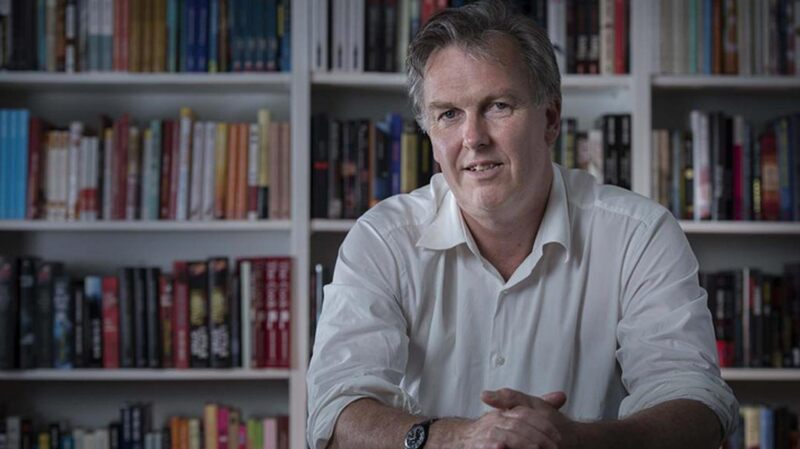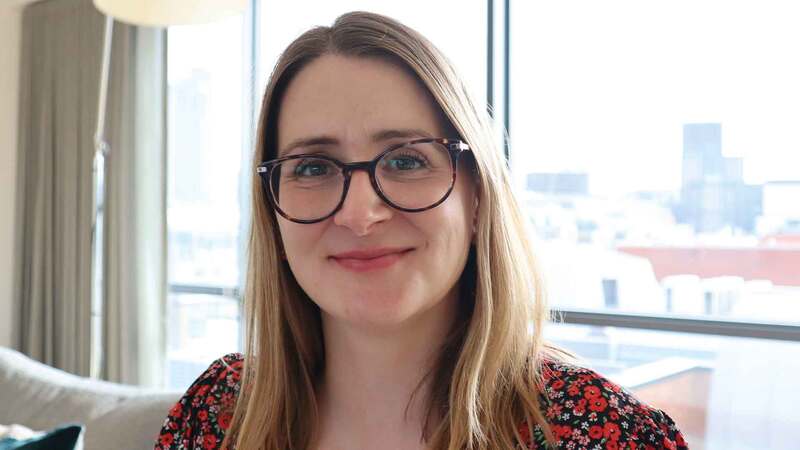You are viewing your 1 free article this month. Login to read more articles.
Vast potential in Instagram and podcasts, M&P conference hears
Publishers have been encouraged to experiment with burgeoning platforms and mediums including Instagram and podcasts to better reach consumers.
The Bookseller’s Marketing and Publicity conference which took place yesterday (13th June) at Milton Court in London, saw delegates briefed on how to create personalised and intimate campaigns to reach readers and also to exploit niche and nuanced audiences.
Will Hayward, c.e.o. of male-focused media website Joe.co.uk, told delegates that there was a lot of potential to "think big" to "hit a meaningful audience", particularly young men who are traditionally "underserved" in the industry.
“The data shows that young people read less than old people, and specifically that young men less than young women - and that gap is growing. I would encourage publishers to think about how to create things that are enjoyable, that are big enough, and have enough of an agenda behind them to hit a meaningful audience", he said. "You’re increasingly doing great things... but I have a degree scepticism [about how much is being done to serve the young male audience]. Young men are an underserved audience [in the publishing industry] and you need to think about how to create [campaigns] to drive them to want to enjoy reading as much as they should. We would like more publishers to come to us and say 'we’re going to take a big risk, we’re gonna do a video, we’re going to tear the plaster off and go for it'.”
He added: “Sports is probably the biggest thing for our audience and sporting biographies have performed okay, but they still only scratch the surface… I'm waiting for book publisher to come along and get us something really provocative and interesting."
Richard Lennon, editorial director at Penguin Random House Audio, said that there is a burgeoning audience of young men who prefer listening to audiobooks. Citing statistics from Nielsen Audiobook Deep Dive 2016 report, Lennon said that UK audiobook consumers are younger, more male, more diverse and more likely to be from a black, Asian, minority ethnic (BAME) background than average.
He gave the example of actor Adam Deacon, who he said was a “huge fan” of books, but tended to “listen rather than read”. “He loves stories and the primary way of getting to them, for him is to listen to them”, Lennon said.
“When planning campaigns, remember these guys. They are a distinct group of people from people who are buying print books, and there’s a real opportunity to reach out to these readers and share your titles with a much broader audience”, he said.
The conference also heard of the vast potential for podcasts, with Ruth Fitzsimons, s.v.p. of international operations at audioBoom, revealing that almost 40% of podcast listeners have bought, tried or researched something a host has recommended, according to a survey.
Jason Phipps, head of audio at The Guardian, told delegates that the media company gets 5.8 million downloads a month across its audio portfolio. “This is a substantial audience, and is a big niche which is getting bigger", he said, adding: “Never in our lives had we had so much audio on demand and we’re still at the early stages of audio growth. The market has an extraordinary long tail, and is an easy sell for people. Podcasting and audio really fill a gap where you want to switch off from screens, but still engage with content and ideas. There were more Amazon Echo’s [voice controlled speakers] bought in its first year than the first iterations of iPhones”.
Fitzsimons said the challenge for the publishing industry is to lure podcast audiences over to audiobooks. “Is it length? Is it the commitment? what’s stopping them? Audio listeners should be more engaged [with audio books] than they are. Maybe some changes to audiobooks will revolutionise the space”, she said.
Lennon added that the size of mature audiobook markets in the US and Germany are at 6% of the overall book market, while the market in the UK is 3%. “There’s no limit to how far you can take that. We’re a long way off being a mature audio market so there’s huge potential to reach more audio audiences,” he said.
Discussing different media platforms, Abigail Bergstrom, head of publishing at Gleam Futures, said that although consumers were “flocking to content generated with mobile in mind”, it is important to create a campaign that has a great idea at the heart of it and is not defined by a specific social media platform.
“Media consumption is so fragmented. It can be really challenging to create a campaign that works well across all those different platforms," she said. "Saturated content across multiple platforms has created more expectations from the consumer. They want content available whenever they want it, wherever they want it. They’re flocking to content generated with mobile in mind.”
Bergstrom added that it was “really important" to "look beyond tech" when we’re trying to reach to this audience. "Technology is changing rapidly and the way they're using it is changing all the time. The backbone of the publishing industry is great books and writers and the backbone of a good campaign are the ideas; social platforms should compliment ideas not define them.”
Bergstrom also encouraged publishers to see the potential of Instagram to influence consumer’s buying decisions. “We've seen an uplift in sales when influencers talk about books on Instagram, and it's one of the best platforms for driving sales. We also look for talent [to represent] on the platform including writers. It's one of the most exciting platforms; people are doing things differently there,” she said.
Bergstrom added that influencers are "really accessible" and have committed audiences and communities they're part of. Citing former "Gogglebox" star Scarlett Moffatt who has recently published a book with Pan Macmillan, she said that "[Scarlett] said that as northern working class girl she didn’t read books because didn’t feel like they were for her. The opportunity for her to write a book sends a message that other women like her should read books and can write books if they like."
Echoing calls to reach diverse groups in the publishing industry, Waterstones Doncaster bookseller Leilah Skelton, spoke about "bubbles" in the industry. "From my perspective, the bubble is mostly geographic but is also about class and education. As a northern working class shop assistant standing up here talking to you I can assure you my imposter syndrome is strong.”
“Don’t be afraid to mix up the author tour map”. It is disappointing, she said, to feel like the “culturally poor relation” when publishers organise tours. “There are book lovers everywhere and going back to my senior manager’s comment [suggested Skelton move to London and join the publishing industry] they shouldn’t have to move to London. This industry should strive to grow outwards and be an asset in every town.”














